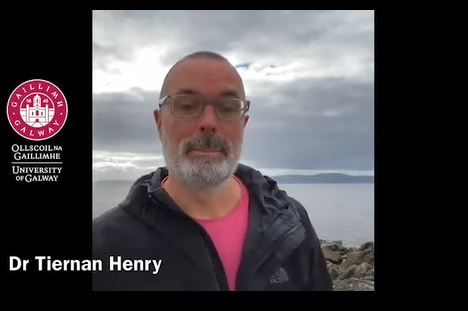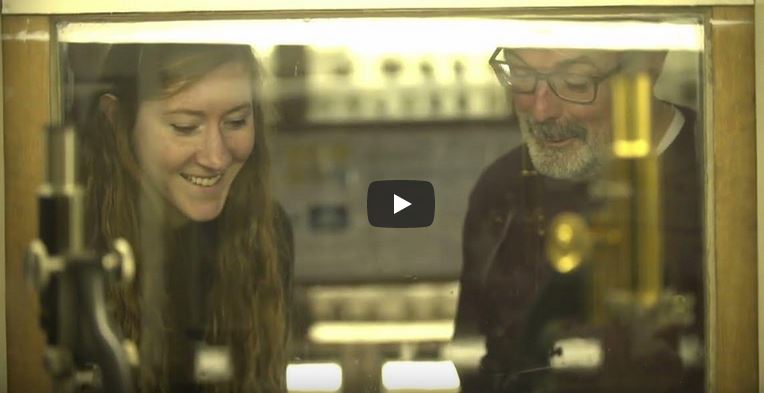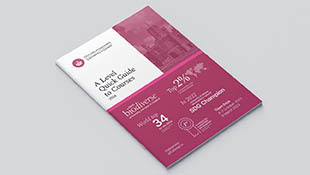-
Courses

Courses
Choosing a course is one of the most important decisions you'll ever make! View our courses and see what our students and lecturers have to say about the courses you are interested in at the links below.
-
University Life

University Life
Each year more than 4,000 choose University of Galway as their University of choice. Find out what life at University of Galway is all about here.
-
About University of Galway

About University of Galway
Since 1845, University of Galway has been sharing the highest quality teaching and research with Ireland and the world. Find out what makes our University so special – from our distinguished history to the latest news and campus developments.
-
Colleges & Schools

Colleges & Schools
University of Galway has earned international recognition as a research-led university with a commitment to top quality teaching across a range of key areas of expertise.
-
Research & Innovation

Research & Innovation
University of Galway’s vibrant research community take on some of the most pressing challenges of our times.
-
Business & Industry

Guiding Breakthrough Research at University of Galway
We explore and facilitate commercial opportunities for the research community at University of Galway, as well as facilitating industry partnership.
-
Alumni & Friends

Alumni & Friends
There are 128,000 University of Galway alumni worldwide. Stay connected to your alumni community! Join our social networks and update your details online.
-
Community Engagement

Community Engagement
At University of Galway, we believe that the best learning takes place when you apply what you learn in a real world context. That's why many of our courses include work placements or community projects.
Bachelor of Science (Earth and Ocean Sciences)
Course Overview
The great societal challenges of this century - and many of the UN Sustainable Development Goals - are directly related to earth and ocean science: increasing vulnerability to geological hazards (floods and earthquakes); increasing need for renewable energy to replace oil and gas and to capture and store anthropogenic carbon; increasing demand for rare minerals and metals to support modern technology; and increasing need to sustainably manage all water resources as our climate changes. How do we rise to these challenges and how can we plan against their impacts? EOS is perfectly placed to train you as a geoscientist equipped with the academic, technical and field skills required to better understand both the complex processes of planet Earth and our interactions with them.
At the University of Galway we offer an approach to Earth and Ocean Sciences that is unique in Ireland. Our staff experience and skills cover a wide range of disciplines such as mineralogy, petrology, geochemistry, geophysics, hydrogeology, physical and chemical oceanography, marine biogeochemistry, palaeobiology and sedimentology. Whether we are studying earthquakes, plate tectonics, volcanoes, ocean productivity, ocean currents, mass extinctions, climate change, energy, or environmental pollution, the most productive insights into these phenomena often arise from interactions amongst the different disciplines.
Applications and Selections
Who Teaches this Course
This course is taught by academic staff from Earth and Ocean Sciences. Optional modules are available across the College and from other Colleges.
Details of staff and contact information is available on the Earth and Ocean Sciences webpage here.
Requirements and Assessment
Key Facts
Entry Requirements
Minimum Grade H5 in two subjects and passes in four other subjects at O6/H7 level in the Leaving Certificate, including Irish, English, Mathematics, a laboratory science subject (i.e. Chemistry, Physics, Biology, Physics with Chemistry (joint) or Agricultural Science) and any two other subjects recognised for entry purposes.
Additional Requirements
Recognition of Prior Learning (RPL)
Duration
4 years
Next start date
September 2024
A Level Grades (2023)
universityofgalway.ie/alevels
Average intake
30
QQI/FET FETAC Entry Routes
Closing Date
NFQ level
Mode of study
ECTS weighting
Award
CAO
GY314
Course code
Course Outline
See course outline for Earth & Ocean here.
YEAR ONE
• Chemistry
• Physics
• Biology
• Plus one of the following:
· Mathematical Studies
· Mathematics
· Applied Mathematics
YEAR TWO
• The Earth: From Core to Crust
• Introduction to Field Skills
• Introduction to Ocean Science
• Plus one pathway from the following:
· Applied Mathematics
· Botany and Plant Science
· Chemistry · Mathematical Studies
· Mathematics
· Microbiology
· Physics and Applied Physics
· Plant and AgriBiosciences
· Zoology
• Plus electives from a range of science modules
YEAR THREE
• Field Skills Training
• Ocean Dynamics
• Aquatic Geochemistry
• Introduction to Applied Field Hydrology
• Sediments and the Sedimentary Record
• Geological Structures and Maps
• The Crystalline Crust
• Palaeontology and Evolution
• Environmental and Marine Geophysical Remote Sensing
• Minerals and Rocks under the Microscope
• Plus electives from a range of science modules
YEAR FOUR
•Final Year Project
• Advanced Fieldskills
• Global Change
• Earth and Ocean Science (EOS) advanced modules
[an error occurred while processing this directive]
Further Education
Postgraduate research opportunities in the field of Earth and Ocean Sciences leading to MSc and PhD degrees are available within the college, and Earth and Ocean Science are one of the groups that are part of iCRAG (the Science Foundation Ireland Research Centre in Applied Geosciences). Research areas currently include characterising ocean health and ecosystems, developing predictive methodologies for use in sustainable agriculture in relation to water management, developing our understanding of how undisturbed peatlands function, exploring Ireland's deep seated groundwater resources, refining our knowledge of Ireland's geological past, and developing new methodologies and approaches to assessing the environmental impacts of microplastics and emerging contaminants.
Why Choose This Course?
Career Opportunities
Graduates of Earth and Ocean Science are working in government agencies and departments (for example: EPA, Teagasc, Geological Survey Ireland), local authorities and other regulatory sectors; graduates are pursuing research and academic careers in Ireland and overseas; graduates are working in the private sector, in a range of industries and for a range of firms in the energy sector (geothermal, wind energy and other renewal energies), in the extractive industries (quarries and mining, especially in relation to rare earth elements), in conservation, restoration and environmental protection, and in the tourism sector. More than 25,000 are employed in geoscience in Ireland and the sector generates more than Three billion Euro per year for the Irish economy.
Who’s Suited to This Course
Learning Outcomes
Transferable Skills Employers Value
Work Placement
Study Abroad
Related Student Organisations
Course Fees
Fees: EU
Fees: Tuition
Fees: Student Contribution
Fees: Student levy
Fees: Non EU
EU Fees are comprised of Tuition + Student Contribution Charge + Student Levy** €140. **Payable by all students and is not covered by SUSI. Further detail here.
Find out More
Dr Eve Daly, Programme Director:
School of Natural Sciences/College of Science and Engineering
Eve.daly@univeristyofgalway.ie
Other Useful Links:
What Our Students Say

Bill Wood | BSc (Earth and Ocean Sciences)
I chose NUI Galway because of the great choice of subjects available through my degree. No other university offers such flexibility for students in this subject area. This becomes increasingly important as you develop during your third level education. There is great interaction between staff and students at University of Galway. I would definitely encourage those with an interest in science or natural sciences to pursue this course. The standard of education offered here is of the highest quality.





















